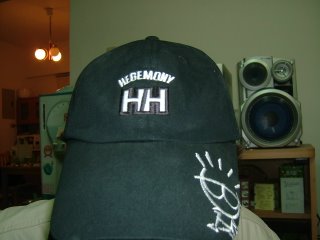One reason, I think, was the characterization of the protagonist, Lt. Harry Brubaker, as portrayed by Holden. He's an unwilling hero--he's been drafted back into the Navy after serving in WWII and he seems deeply resentful of the fact that he has to be fighting in Korea when other people don't. He wants to get back to his family and career in the States. When he complains to his commander, Admiral Tarrant, Tarrant tells him, "You fight because you're here," suggesting that an unavoidable fate has brought Brubaker (and the U.S.) to this place.
Brubaker gets a chance to visit his wife and children in Japan, but then has to return to duty. The time with his family is perhaps there to remind viewers of what Brubaker is sacrificing. Tarrant has a chance to tell Brubaker's wife Nancy about the dangerous mission her husband will be going on soon because the Admiral feels that his own son, who died in battle, should have told his wife more about what he was going through. Tarrant seems to resent the fact that, as he puts it, people in the U.S. are so comfortably separated from what is going on in the war.
When Brubaker finds out that he has to participate in the bombing of some key enemy bridges at Toko-Ri, he becomes visibly sick. Brubaker's nervousness, frustration, and (I think) fear at the prospect of losing his life is understated, but well-portrayed by Holden. There's one scene where he is trying to write a letter to Nancy, but keeps crumpling up the paper when the sound of jets overhead disturbs him. He goes up on deck and stands, staring at the sea for a while, then finally wipes the sweat (and tears?) off of his face before going back below.
After Brubaker is shot down during the climactic bombing run, and shortly before he and a comrade die in a firefight in an irrigation ditch, he repeats Tarrant's words ("You fight because you're here") to his comrade, suggesting that he has accepted his fate.
The Wikipedia article on the movie says that this isn't a propaganda film. Perhaps not in a traditional sense--I think the characterization of the protagonist is more complex than in a typical war film of that era (though people who have watched more war movies than I have can disagree). But I think there's an element of propaganda in how the film argues that Americans need to be aware of the sacrifices that the men in the military are making to fight against Communism. Even if Brubaker is an unwilling hero, chosen by fate to be there, in the end he does his duty and doesn't question the need to fight--and neither does his wife. Perhaps it's a propaganda film for a more sophisticated audience, or for an audience that was not yet convinced that the Cold War demanded sacrifices?



